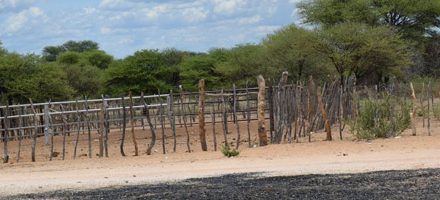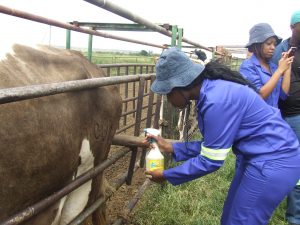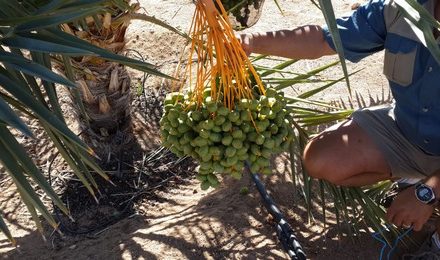
Agribank mentoring emerging farmers
The Agricultural Bank will continue with their support towards farmers this year by availing 32 mentors to provide training in the northern communal areas as well as areas south of the cordon fence. The farmers support programme is continuing with the work of the Emerging Commercial Farmers Support Programme which existed from May 2007 up until August 2009 with a budget of N$10,086 ,013 million which Agribank and Deutsche Gesellschaft für Internationale Zusammenarbeit (GIZ) contributed equally. Agribank later had made a contribution of N$18,970,000 million from November 2010 until March last year. The Agricultural bank in partnership with the Ministry of Lands and Resettlement with funds from the Deutsche Gesellschaft für Internationale Zusammenarbeit and other partners initiated the Emerging Commercial Farmers Support Programme with financial assistance from the European Commission through the ninth European Development Fund. The appointed mentors specialise in livestock, dry-land crop farming and horticulture and will to operate in all 14 regions.
Agribank Namibia spokersperson Richard Kamukuenjandje said that the Farmers Support Programme (FSP) hosts 86 Farmers Information Day events reaching 4027 farmers from 2010 to March last year south of the veterinary cordon fence line with 2113 farmers in the northern communal areas(NCAs). “Advisory services are given on a voluntary basis and on demand from the farmers. The project currently has 34 region-based mentors country wide who visits farmers on a regular basis depending on the need of the farmer and also on available resources,” Kamukuenjandje said. He added that some farmers are visited on a monthly basis and others only twice per year. In addition to mentoring, farmers receive training in the form of topic related short courses, farmer information days and exposure visits to best practices. Excursion events showed 251 farmers better farming practices with seven other events to 136 farmers in the northern communal areas. Capacity building management training courses saw 155 executive members trained. Meanwhile the Communal Land Development Programme is still in the beginning phase and has contracted 2 mentors for Ongandjera and Kavango. Farmers information days, excursions and mentoring days are planned for January till March 2015. In late 2013, Government and the European Union signed a financing agreement to support the Governments’ Program for Communal land Development in agreement with the GIZ. The EU will contribute EUR 470,000 for the mentoring and coaching component of the Communal Land Development Programme. Advisory services will be provided to programme sites in Ohangwena (Okongo), Omusati (Otjetjekua), Kavango, Zambezi, Otjozondjupa and the Omaheke Region. The Communal Land Development Programme advisory services beneficiaries receives advise on how to tap into the improved physical environment and to pursue more commercially driven modes of production. Kamukuenjandje said that farmers are supported to increase their on farm income in a sustainable manner.
The project aims to enhance the knowledge, skills and attitudes of farmers in improving their farming practices. He said this also enhances the interaction between farmers and service providers in the agricultural industry while improving the rural communities livelihoods by developing communal lands. “Sustainable land management practices improve the productivity and market-orientation through securing land rights, infrastructure investment and access to advisory services that allows beneficiaries in the communal areas to improve their livelihoods,” Kamukuenjandje said.











































